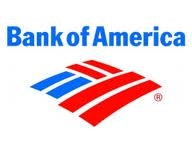Over the last few weeks, news about executive compensation on Wall Street has started to leak out.
In the middle of last month, the board of directors at JPMorgan Chase & Co. (NYSE:JPM) slashed its CEO Jamie Dimon’s 2012 compensation in half, down to $11.5 million, following the $6 billion London Whale debacle. On Tuesday of this week, alternatively, Bank of America Corp (NYSE:BAC)‘s board gave its CEO Brian Moynihan a 73% raise, increasing his total payout to over $12 million for last year.

1. He’s a lawyer
For those of you who have followed the B of A saga over the last few years, you know the bank’s biggest challenge has been its legal liability for the sins of Countrywide Financial. Between 2004 and 2008, the year B of A acquired Countrywide, the nation’s largest mortgage originator at the time underwrote a staggering $1.562 trillion in residential home loans.
Of this massive figure, it sold roughly $800 billion worth of mortgages to Fannie Mae and Freddie Mac. And the other $700 billion it packaged into mortgage-backed securities and marketed to institutional investors like university endowments, pension funds, etc. Large swaths of these mortgages have since gone bad in the meantime, and investors are now looking to B of A to make them whole.
As I discussed at length in a recent series on B of A’s legal liabilities, the bank has already spent more than $35 billion to resolve claims related to its sale of mortgages to Fannie Mae and Freddie Mac and the manner in which it serviced the mortgages themselves. But while this is a staggering figure, by my estimate, it could still owe as much as $15 billion to $25 billion above and beyond allocated reserves. It’s for this reason, in turn, that having a lawyer at the helm couldn’t have come at a better time for B of A.
2. He’s foresworn acquisitions
Many investors perceive acquisitions as a good, if not necessary way for companies to grow. When it comes to banks, however, nothing could be further from the truth, as evidenced by B of A’s purchases of Countrywide and Merrill Lynch. Speaking very roughly, the former could ultimately cost B of A upwards of $100 billion, and the latter was the primary impetus for the egregious dilution of B of A’s stock in 2009 and 2010.
Speaking more broadly, a good general rule to keep in mind is that bank acquisitions are bad and should be avoided. As I discussed in a recent exchange with a reader, particularly under the heightened capital requirements of Basel III (assuming these get fully and finally implemented), the goodwill that accompanies an acquisition exerts an inordinate influence on a bank’s profitability. You’d rather have assets that both earn and don’t count against your capital, as opposed to an intangible asset such as goodwill, which serves as dead weight on a balance sheet. As opposed to buying another bank, in other words, I believe most banks would better serve their shareholders by simply buying Treasuries.
Given his experience cleaning up after the unconscionably acquisitive former-CEO Ken Lewis, it’s no surprise that Moynihan appears to agree. Among the three promises he made to B of A’s board upon taking over was that he would “forget all acquisitions, now and forever.” That’s music to most experienced bank investors’ ears.
3. He’s dedicated to returning capital to shareholders
Last but certainly not least, like every good banker, Moynihan is dedicated to returning capital to shareholders. It never ceases to amaze me how few businesses, much less banks, distribute the lion’s share of their earnings to shareholders. It’s almost as if executives and board members have forgotten who owns the company — I say that rhetorically, but I mean it.
So when you come across a bank that follows this shareholder friendly path, you’d be wise to consider investing in it. This is the reason I’m such a fan of New York Community Bancorp, Inc. (NYSE:NYCB), the New York-based regional lender that specializes in multifamily financing. Not only did it avoid the siren song of CDOs and MBSes that ruined many of its peers during the crisis, but it’s continued to pay out between 80% and 100% of its earnings every quarter.
To get back to Moynihan, his two-pronged strategy since taking over in 2010 has been to accumulate a “bulwark of capital” and then distribute all earnings in excess of that once the bank has been given regulatory approval to do so. As an excellent biographical sketch of Moynihan put it, “We’re talking about $25 billion a year, all stuffing shareholders’ pockets.” And first on Moynihan’s list is erasing the aforementioned dilution. “We need to get back most of the shares we issued in the crisis, that caused all the dilution,” Moynihan told Fortune’s Shawn Tully. Again, as I noted above, this is music to any rational shareholder’s ears.
The Foolish bottom line
At the end of the day, B of A’s Brian Moynihan isn’t going to win a popularity or personality contest. But that’s not what you want in a banker. Boring and brilliant are what you want in this regard. And Moynihan is both.
The article 3 Reasons Brian Moynihan Is Dead-Right for Bank of America originally appeared on Fool.com and is written by John Maxfield.
John Maxfield owns shares of Bank of America. The Motley Fool owns shares of Bank of America and JPMorgan Chase.
Copyright © 1995 – 2013 The Motley Fool, LLC. All rights reserved. The Motley Fool has a disclosure policy.




